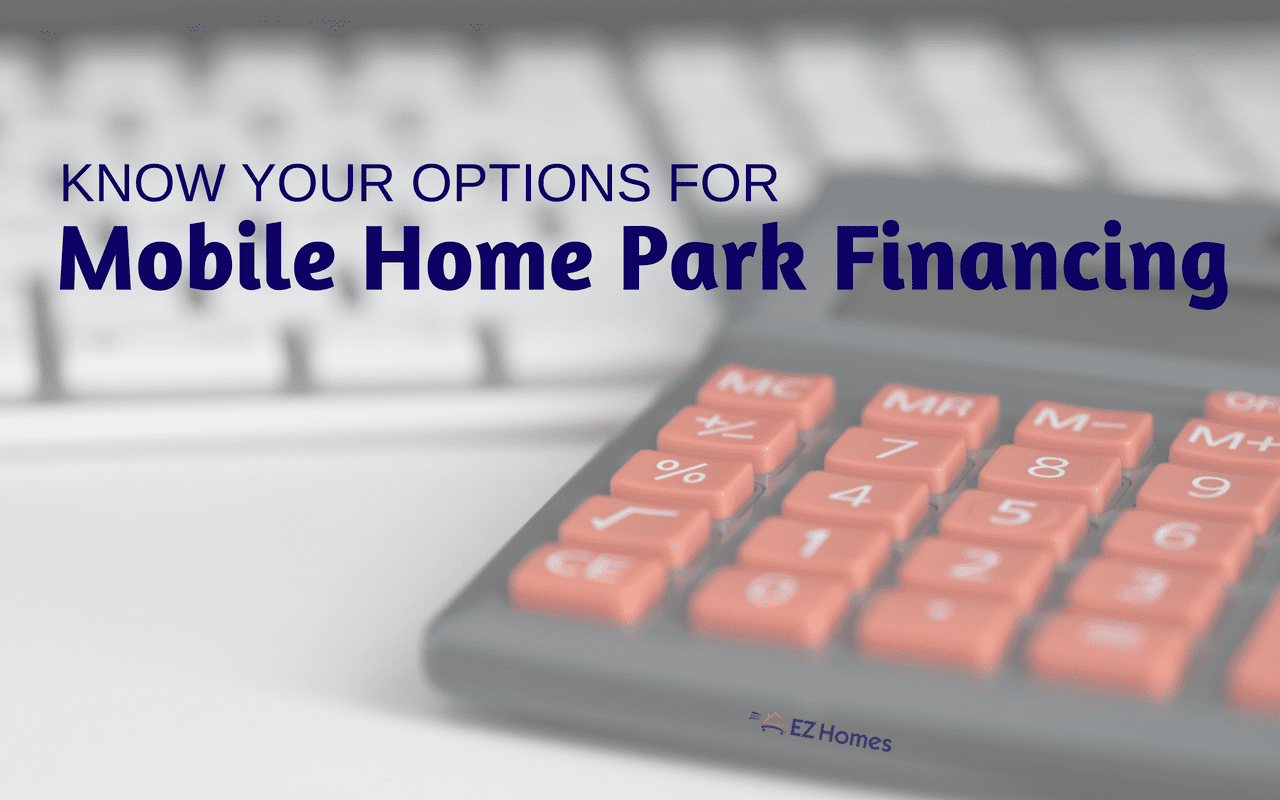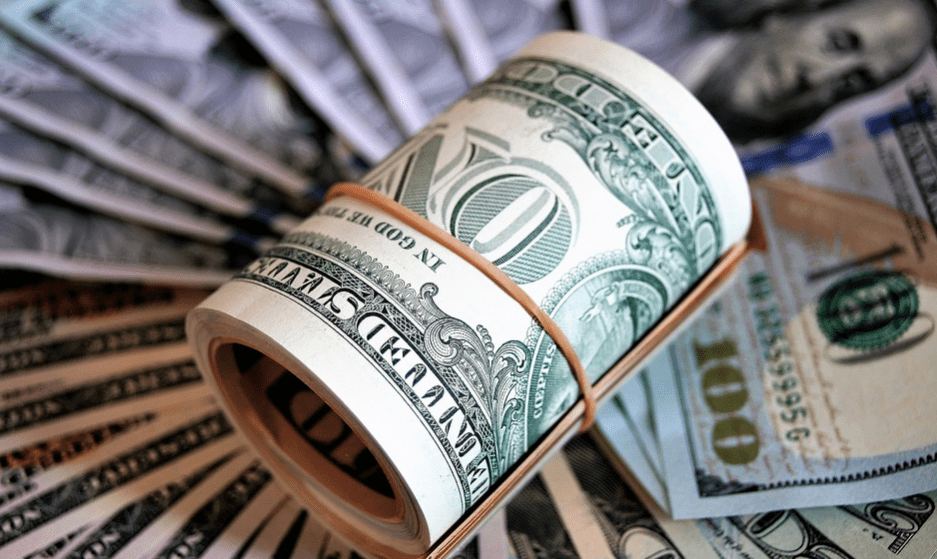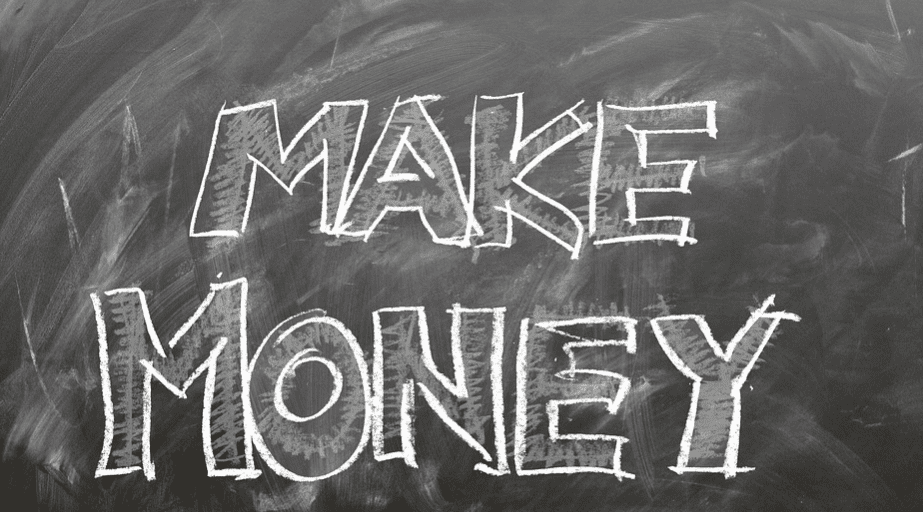Few people have pockets big enough to buy a mobile home park outright. If you do, good for you. However, this article is for those of us who would like to make a significant investment like this without breaking the bank and who are looking for mobile home park financing options.

The world of mobile home park acquisition is alive and well, and you have a surprising number of courses open to you regarding financing. We will introduce you to the most important ones to know about as well as give you a quick explanation of how they work.
Because we like to always furnish you with all the information you need, we will also go over some basic terminology you need to know as well as discuss ways in which you can aim for as small a down payment as possible.
Understanding the basics of a mobile home park loan
Let’s first take a look at some important terms that you will come across while browsing financing options and how they bear on your mobile home park acquisition.
Principle
We don’t need to spend too much time on this one. The principle is just a fancy name for the total sales value of the mobile home park. If you look at it another way, it’s your total loan amount + your initial down payment.
Down payment
With just about any type of loan or mortgage, you will need to make some kind of initial down payment. This initial amount serves as security against you completely walking away from the sale as a buyer without paying at least a significant amount of the property. A more significant down payment also usually means a lower interest rate on the leftover principle you need to pay.
This is particularly the case when it comes to loans or mortgages from traditional sources. Down payment amounts can vary dramatically based on the type of financing; you can expect most to fall within the 5%-35% range. We will discuss some ways you can get a loan with no down payment.
Loan-to-Value (LTV)
If you have spent any amount of time looking at loans online, you have no doubt come across this abbreviation multiple times. It’s actually a very simple concept. It’s a ratio, usually given in percentages, that expresses the amount of the loan relevant to that of the total sales price of the property.
For example, if a property costs $500,000 an 80% LTV means that you are able to get a loan of up to $400,000. Which also means you need to make at least a $100,000 (or 20%) initial down payment. Lenders use this as an eye-catching marketing tool with language like “get a loan with an LTV of 80%”. However, this doesn’t mean everyone will qualify for the best case scenario.
Interest-only vs. Amortizing
These are the two main types of loans you will see, especially if you work with a traditional lender. The difference between them can be slightly confusing for some. Amortization literally means “killing off” the loan.
A loan’s amortization period is the period in which the total amount would have been paid back. A loan with a 25-year amortization period will be paid off interest and all within 25 years at the monthly rate. Crucially, this means your principal and interest will be paid off at the same time.
With an interest-only loan, you are only paying off the interest with your monthly payments. You will need to pay the entire loan amount in separate bulk amounts then. Or, in most cases, as a single lump sum once the interest is paid off. In rare instances, this final amount can also be paid in an interest-free loan sum.

Debt coverage
The debt coverage of a mobile home park purchase is a handy statistic for both the buyer and the lender. In short, it captures how well your income generated from the park will cover your loan payments or responsibility. For this, you will need an estimation of your capitalization rate (or Net Operating Income(NOI)). You will then subtract your debt service (total yearly loan payments) from this amount to get your net income. The percentage that your net income is of your gross annual income (income without operational cost) plus 100 is then your debt coverage.
For example:
Gross income: $100,00
Operating costs: $20,00
Debt service: $30,000
Net Income = $50,000
Debt coverage % = Net Income / Gross income (50,000/100,000) = 50%
Debt coverage = 150%
Lenders use this to gauge the liquidity and the prudence of your mobile home park acquisition. It provides an indicator of how well your investment will do and how able you will be to keep making your payments.
Mobile Home Park Financing Options
Now that we’ve got the boring stuff out of the way, let’s look at the actual options open to you through which to get financing for your mobile home park.
Seller Financing
For most buyers, this would be the ideal solution to their financing needs. Seller financing is precisely what the name suggests; instead of getting a loan from a third party lender, you and the seller of the park come to an arrangement where you pay them for the park over a specified period. As you can expect, you won’t be tied down by set in stone requirements, periods, payment schedules, etc. of traditional lenders. You can also skip the frustrating and large amount of paperwork that this type of loan requires.
The terms of this arrangements are entirely up to the negotiations between you as the buyer and the mobile home park seller. It’s not uncommon to make a deal where you pay no interest and don’t make any down payment. If you are buying from a mom-and-pop seller, your chances of negotiating a good deal are even better. This is also an attractive option for a seller because it could significantly lower their taxes on the sale.
Bank financing of mobile home parks
There is still a stigma surrounding mobile home parks and mobile home park investing. Although financing through traditional channels, like a bank, is possible, it will be squarely on the terms of the lender. You can expect the terms for this type of loan as well as the requirements for your personal credit history and financial status to be higher than something like a home loan. Because these loans are complex, they are often structured into different periods that might differ based on whether it’s fixed/variable, the interest rate, etc.
Expect a very high down payment of 30%-45%, interest rates of around 5%-7%, and short(ish) periods of 15 to 25 years. On top of this huge initial sum, you should also expect a number of other fees like origination fees, broker fees (if you went through a broker), legal fees, closing fees, etc. However, you will in some cases have the opportunity to refinance, and you won’t be exposed to any funny business (that’s not in the fine print, at least).
Commercial loan
A commercial loan is just a loan that’s made to a company instead of an individual. There are a few quirks of this specific type of loan that make it a bit different than a normal loan, although not a lot. They are most often offered by private organizations that are in it for a profit themselves. As such, they will highly prize a good debt coverage.

On the face of it, it will look a lot like a conventional loan. It might be structured the same way as well with different periods. There might also be different requirements for parks in different price brackets. When going with this option, it’s absolutely critical that you go with a reputable and trusted lender.
Hard Money
If the name already sounds slightly threatening, that’s only because the method itself can be just that. This is an asset-based loan where you get financing from an unofficial party that’s secured with by the property (in this case, the mobile home park). As these lenders know someone that approaches them has most likely exhausted all other avenues and are desperate, the terms are stiff. Interest rates usually start in the high 7%.
There is also a large amount of risk involved as you aren’t protected by the same industry practices and consumer protection that comes with more conventional means. If you become unable to pay the remaining sum of your loan, the lender will take the park as collateral. If you find a generous enough soul to loan you this type of money with no strings attached, you are lucky enough to start playing the lottery.
Another obstacle that you must navigate with this type of loan is that there are scaley people out there who will give you a loan they know you ultimately cannot repay so that they can take the property from you. This is in stark contrast to banks and other commercial lenders who make proving the viability of your investment a cornerstone of getting approval for it in the first plays.
How to get a low (or 0%) down payment
Getting some form of financing to support your mobile home acquisition, already makes it a much more affordable process. However, if you want to dampen the impact on your wallet even further, you could try the following methods to secure a 0% initial down payment:
Negotiate
When it comes to traditional financial institutions or banks, good luck! However, if you are buying from an individual owner, you almost always have some room to bargain. Proving your commitment or trustworthiness and offering something else in return can land you an absolute steal in regards to the down payment.
Offer them a slightly higher monthly payment, agree to their terms or just say that you need the money to make repairs. Get creative. Shop around on sites like MHVillage or MobileHomeParkStore for pliable sellers.
Wrap the existing loan
It’s often the case that mom-and-pop owners still have some kind of loan or lien on their mobile home park. Owners who bought a park back when getting this type of financing was easier often now find themselves in a cycle of refinancing.
This process involves assuming the existing loan amount as a new loan and paying the remainder of the park’s value to the current owner. For example, if a park costs $300,000 and there is $200,000 left on the loan; you can take out a loan of $200,000 and pay the rest to the seller. This can be done in monthly payments or regular lump sums. Or whatever you can negotiate.
Master lease with option
This might seem a lot like seller financing, however, it does come with a number of important distinctions. It’s also debatable whether this method of buying a mobile home park actually counts as financing. With this option, you technically only lease the park from the owner. Usually, you also get all the income (or a sizable portion) of the park’s income during this time. The seller still maintains ownership of the park.

However, within the lease agreement, there is a clause that after leasing the park for a certain period, that you can buy it at a predetermined price. This is an attractive option because it’s easier for a buyer to back out of if they decide that the park owner life is not for them. The buyer also gets a good income from their park without any of the responsibilities.
Be familiar with and knowledgeable about available options
That’s all the most important information you need to know when it comes to your options for mobile home park financing. If you are looking into buying a mobile home park, we recommend you check out our other helpful articles and guides on the matter:
- The Risks Of Mobile Home Park Investing & How To Be A Smart Investor
- Understanding The Types Of Mobile Home Park Ownership
- 5 Terrible Reasons to Buy a Mobile Home Park
- How to Build an Outstanding Mobile Home Park Management Team
- Creating Your Mobile Home Park Business Plan for Success
The best thing you can do before undertaking such a massive venture is to gather all the information you can. This will help you protect yourself against disaster and make the right choices at each junction of this multi-stage process. As always, we hope that you find this information useful and can apply it to your situation. We wish you all the best with your investment.


